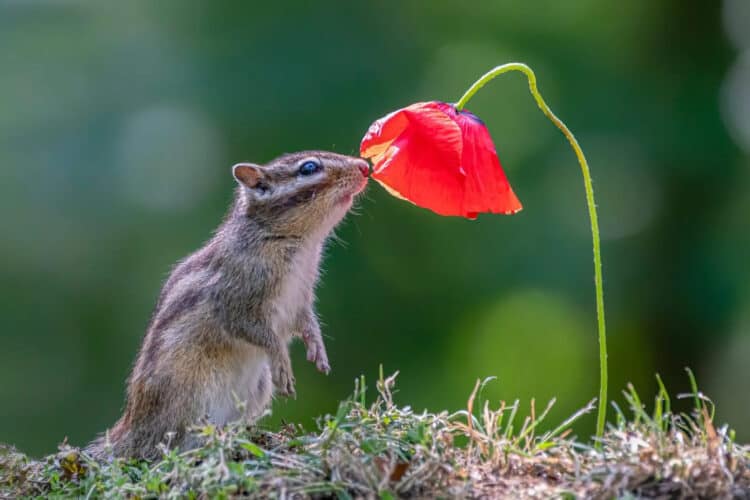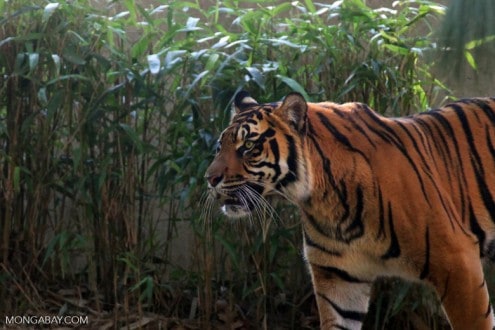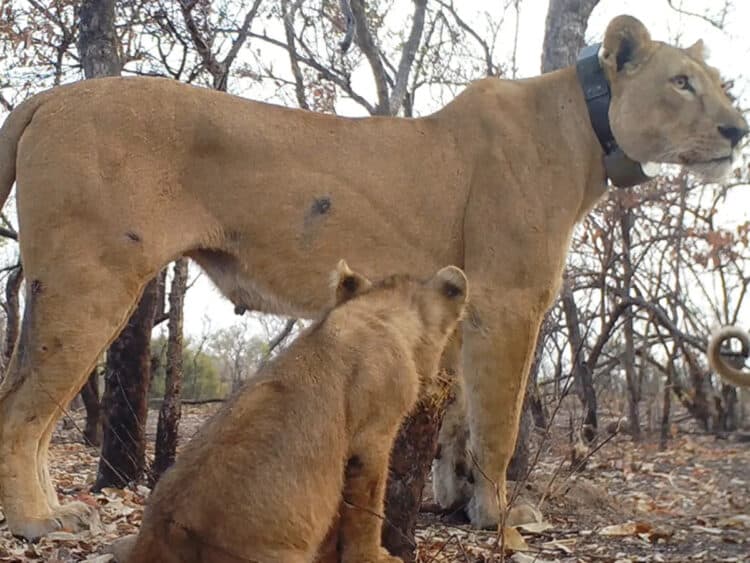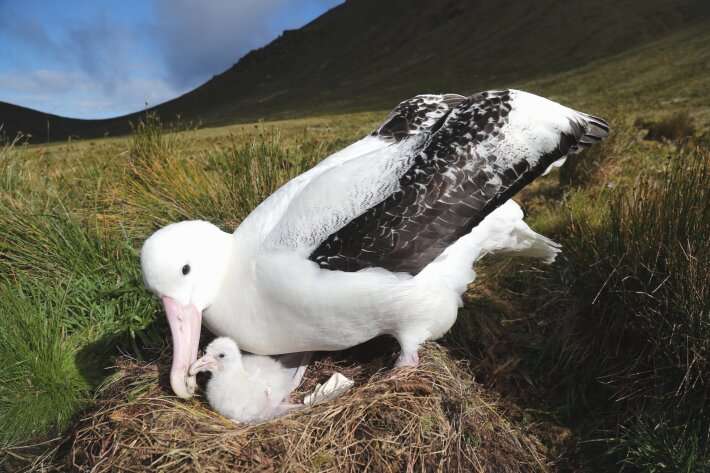During this festive season, Weird Animal Question of the Week couldn’t help wondering: Are there any other animals that give gifts? And are their gifts any good?
Great Things in Small Packages
Dead bugs and body parts may not seem appealing to us, but they’re exactly what many animals want any time of year.
Several insects, for example, give what are called “nuptial gifts” during courtship and mating. The male scorpionfly offers a blob of his saliva to females, some male butterflies give their mates a package of sperm and helpful nutrients, and male sagebrush crickets let females snack on their wings during sex and drink the blood equivalent that comes from the wound.
Sara Lewis, Tufts University entomologist and author of Silent Sparks: The Wondrous World of Fireflies, has just revealed some ingredients of firefly nuptial gifts.
Turns out the coiled see-through package, which you can see in this video, that the firefly male gives the female is packed with over 200 proteins and other chemicals that potentially increase the number of eggs the female lays and an enzyme to help release the gift—sort of like a chemical pull-tab.
The luminous lover’s package also includes lucibufagins, a toxin that makes fireflies noxious to predators, says Lewis, whose study was published December 22 in the journal Scientific Reports.
Whereas firefly presents are “homemade,” Lewis says, foragers such as male nursery web spiders give females freshly killed prey, “carefully wrapped up in silk.”
Sometimes the suitors may skimp, though, wrapping up a bit of unappetizing plant or “a dead insect they already sucked dry.”
Worst Secret Santa ever.
Go With the Crow
Gifts are for the birds, too.
Wild crows bestow gifts upon people who feed them, says John Marzluff, an ornithologist at the University of Washington. In one case in Washington State, crows gifted a man who fed them with a locket, a candy heart, and bits of stone, among other items.
In another instance, an Arizona woman freed a crow stuck in a fence. Another crow then began routinely leaving bits of food on her porch, “like one would do for its mate,” Marzluff says.
That’s because these highly social and intelligent animals “form bonds with important players in their worlds,” which sometimes include people who help them, says Marzluff, co-author of Gifts of the Crow: How Perception, Emotion and Thought Allow Smart Birds to Behave Like Humans.
A male bird often presents food as part of courtship to demonstrate he’s fit and can provide nutrition for a female laying or incubating eggs, or “even just for maintaining the pair bond,” adds J. V. Remsen, an ornithologist at Louisiana State University.
Kingfishers give fish to their mates, while the great gray shrike, native to most northern climes, is more dramatic. Males impale their prey on thorns, creating a “mouse kabob” of sorts. Females then survey the options and go for the male with the meatiest skewer.
It’s All Relative
The odds of getting a gift from your closest relatives this season are slim. We’re not talking about Aunt Sally, but your African wild kin.
Chimpanzees and bonobos, which share 98 percent of our DNA, will share food, but passively—like in the way you let someone swipe fries off your plate.
“Only 2 percent of food sharing is an active donation to the other,” says Frans de Waal, primatologist and ethologist at Emory University and author of over a dozen books on primate behavior.
Gifts are also used in return for favors or as items of barter, says de Waal.
“A male chimpanzee may raid a farmer’s plantation to bring a papaya to a female so that she will have sex with him,” he says by email. “Or a young bonobo female may seek sexual contact with a male who holds food and remove it from his hands during the copulation.”
Take-Home Prey
Those dead mice from Mittens? They aren’t gifts, says John Bradshaw of the U.K.’s University of Bristol and author of The Trainable Cat.
Pet cats take prey home to eat in safety, but once they get there, the bewitching scent of cat food is more appetizing and “at that point they abandon the prey.” So, contrary to popular belief, your cats aren’t giving you their version of a home-cooked meal.
Hands up: Who’s surprised that the cat is thinking of the cat?
This article was first published by National Geographic on 24 Dec 2016. Lead Image: A great gray shrike perches near a mouse it impaled in Lower Saxony, Germany. Photograph by Duncan Usher, Alamy.







Leave a Reply